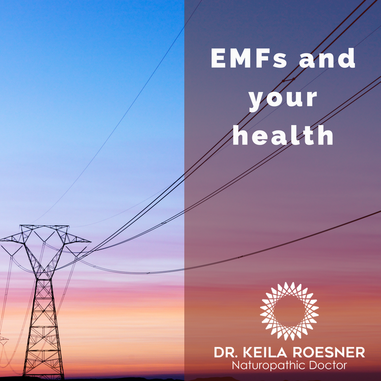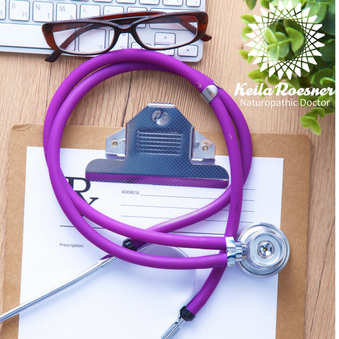Keep Your Metabolism Strong and Hormones Balanced Over The Holidays – A Naturopathic Perspective12/18/2019  Do you have big plans for January? Many of our patients say they’d like to take control of their health in 2020 (New Year, New You, right?). That often includes losing some extra pounds. However, it’s always important not to get caught up in the numbers on the scale. Instead, a good alternative goal is to focus on lowering your body fat (but only if that would help your general health) and raising your energy levels. In other words, your goal should always be to improve your overall quality of life, not to chase after an often-elusive number on a scale. No matter why you want to lose weight, it’s important to approach your New Year’s resolution with a strategy. That will raise your odds of success. (Here’s a sobering fact: About 80 percent of New Year’s resolutions are abandoned by February.) The Run-Up to the New Year Think about it. We often coast through December, eating, drinking, and neglecting our usual fitness routine. Then January arrives and we expect our body to adjust to an austere new regime. It’s no wonder that many people give up. Believe it or not, it’s possible to prime your body to get ready for January’s resolutions/yourreallife while still enjoying the holidays. That includes revving up your metabolism so it’s ready to deal with dietary changes. And it’s even possible to do this during the busy month of December. Here are some steps that can help. 7 Ways to Avoid Packing On Extra Pounds This Holiday Season
Yes, improving your metabolism can feel like a daunting task this time of the year. However, taking a few simple steps now can help get ready to meet your New Year’s resolutions head on! If you’re not sure how to begin with all these tips, the best plan is to speak with an expert! We’d be happy to help you create a unique plan that suits you and would love to have a complimentary Health Discovery Session with you. Sources:
1 Comment
 Estrogen – it’s not a dirty word. Estrogen plays an important role through the course of our reproductive lives and beyond. It regulates our menstrual cycle, strengthens our bones, controls our cholesterol, and much more. When our estrogen levels go “out of tune” we experience PMS or menopausal symptoms. But even before menopause, varying levels of this vital hormone can wreak havoc. That’s because estrogen requires a delicate balance with other hormones. When that balance is disturbed, we can experience a wide range of frustrating symptoms. This hormonal imbalance often occurs during a particularly busy time of our lives, the period from about age 25 through to menopause. As a result, our practice sees many women who are dealing with unexplained weight gain, mood swings, and libido problems. But there is help available. A few simple steps can help you restore balanced estrogen levels and feel like yourself again. How Do You Know if You Have Estrogen Dominance? Estrogen dominance can impact many areas of our lives, with symptoms that range from subtle shifts to major disruptions in wellbeing. Many women in this age group assume these issues are a normal part of aging or a consequence of their busy schedules. Just because it is common, does NOT make it a healthy normal! Even a slight imbalance in hormone levels can lead to a number of problems. Symptoms can vary greatly by person, but often include:
Does that list look familiar? I see many women in my practice each month with complaints like these. I totally understand how frustrating they can be, especially when you’re unable to find effective treatment. And, of course, the complex relationship between estrogen and our emotions can only magnify the frustration. Who wants to feel irritated about feeling irritable? It’s not only women who can experience estrogen dominance. You may be surprised to know that men can suffer an excess of estrogen as well. In men, estrogen dominance can manifest a bit differently, with some of these symptoms being common:
What Causes Estrogen Dominance? To understand estrogen dominance, we have to consider the role of another important hormone, progesterone. Progesterone and estrogen maintain an often tricky seesaw in our bodies. Prior to menopause, the balance shifts at different stages of the menstrual cycle. Estrogen dominance isn’t necessarily a surge of estrogen, but an imbalance in that seesaw. Simply put, estrogen dominance happens when the seesaw tips to one side because there is not enough progesterone to balance out the estrogen. There’s actually no “set” number we can measure that proves an estrogen dominance diagnosis. It’s the overall hormonal profile that is important – the DUTCH test is an extremely valuable tool that I use regularly for assessing this balance. How does estrogen become dominant? A key factor is the timing. Or, to be more specific, the time of our lives. Consider a normal menstrual cycle during our reproductive years: After we ovulate mid-cycle, our bodies produce progesterone to balance out estrogen. But as we near menopause, we often have some menstrual cycles when we do not ovulate. As a result, there is not enough progesterone to balance out the estrogen. Enter estrogen dominance -- and its long list of possible symptoms. To a certain extent, estrogen dominance is a natural part of our aging process. However, recent years have seen a rise in estrogen-dominance complaints, and our busy lifestyle may be a big factor. Environmental and behavior issues can increase estrogen levels, tipping the seesaw even further. What’s to blame? Take a look at this list.
How Can You Restore Hormone Levels? Our practice can work with you to re-balance your hormonal havoc. Starting with an accurate diagnosis, we can create a lifestyle plan that works for you. As a starting point, these changes are recommended:
Do the estrogen dominance symptoms sound a bit too familiar? Please contact our clinic and we’ll get to the bottom of what’s going on and create a plan of action to bring your body back to good health. References  Understanding the effects of Electromagnetic Radiation (EMF) and Radiofrequency Radiation (RF) on Your Health Our health is directly affected by a variety of things we cannot see but know to be true. We don’t see the air, but we are sensitive to air quality on a smoggy day. We cannot see UV rays, but we can certainly feel their effects while baking at the beach. Gravity is also not visible but if you're clumsy like me, you'll be very familiar with its effects as well (I was famous in high school for not only falling down but also up stairs... it happened a lot). And while we cannot see electromagnetic radiation (EMF), a growing number of people are reporting symptoms that directly correlate to electrical hypersensitivity (EHS) and radiofrequency radiation (RF). Over the last 20 years, physicians with the American Academy of Environmental Medicine have been seeing patients whose symptoms appeared to be triggered by “dirty electricity” – which is when high frequencies travel along electric wires between the power source and electric grid. This includes power lines, televisions, computers, and other electrical devices. Those suffering from EHS might experience varying symptoms including headaches, dizziness, chronic fatigue, depression, memory loss and confusion. Now, more than ever, we are living in a world of convenient luxuries that depend heavily on electrical pollutants. We have phones in our pockets, microwaves in our homes, and satellite systems in our cars. As science attempts to keep up with our technology leaps and bounds, we are only beginning to comprehend the effects RF waves have on our health. What is Radiofrequency Radiation? The electromagnetic wave spectrum is composed of two parts: ionizing radiation and nonionizing radiation. Ionization radiation includes X-rays and ultraviolet rays, whereas non-ionizing radiation includes radiofrequency (RF). For years we have focused on the negative impact of ionizing radiation, but now we are starting to understand the impact of non-ionizing radiation or radiofrequency. RF is what allows you to borrow your neighbour’s WiFi while you’re waiting for the service guy to come (thank you university roommates!). Without the need for wires, RF has the power to pass through walls and go just about anywhere it pleases – and that includes inside our body. In this digital age, almost anything we can imagine can be a source of radiofrequency radiation. Our cell phones might seem obvious, but what about our Smart Meters, our children’s gaming systems, the baby monitor? They all use wireless communication, surrounding us in a constant invisible fog of over-stimulation and electrosmog. Our society encourages us to keep up or fall behind. Have you ever passed the Apple store the day a new iPhone hits the market? So many of us are willing to stand in lengthy lines, just to be early adopters of the latest technology. We prioritize and depend on technology to make our lives better. And no doubt, it does. However, most of us never consider how our addiction to technology also impacts our health by inundating our bodies with a constant barrage of radio frequencies. How Can EMF & RF Affect Your Health? While EMF and RF radiation is considered "biologically safe" according to safety data provided by Health Canada and other organizations, the reality is that the level of our constant low-grade exposure is not reflected in their guidelines. Some scientists have been researching the impacts of electrosmog on our bodies long before our world became so highly digitized. In 1987, one study proved that exposure to electrosmog at levels considerably lower than those observed in urban areas created changes in human brain waves and behaviour. EMF may also affect the mitochondria -- our cellular energy factories, which are fundamental to every energy-dependent process in our body, most notably our nervous system. As a result, EMF-induced disruption of our mitochondria may effectively bolster neurodegenerative diseases like Alzheimer’s and Parkinson’s, as well as playing a part in other diseases and health issues where mitochondrial dysfunction is implicated. These include psychiatric disorders, autoimmune diseases, headaches and migraines, chronic fatigue syndrome, fibromyalgia, stroke, diabetes, heart disease, reproductive disorders, cancers… the list goes on and on! If EMF and RF are already having an impact our lives, what are the long-term effects for our children raised in a world choked by electrosmog? Only time will tell. Minimize Your EMF & RF Exposure While more data is required, we already know that there are larger health ripple effects associated with our beloved devices. You can start reducing your exposure to EMFs by:
By simply spending time in nature and grounding yourself so you have direct contact with the earth, you are opening the gateway for an influx of electrons to be absorbed and distributed throughout your body. This transfer of electrons can help to neutralize oxidative stress and minimize any derangements in the electrical activities of your body. Put down the damn phone and open the door to a healthier future! I want to help you take control of your health! If you believe you have symptoms that could be related to electrical hypersensitivity, please book a free Health Discovery Session to find out more. In health, Dr. Keila Roesner BHSc ND References:
 Time outside in nature, especially in the forest or by water, can help reduce your EMF exposure Time outside in nature, especially in the forest or by water, can help reduce your EMF exposure 
It is a persistent ache-in-your-bones feeling, like walking through mud every day and struggling to do the little things. It is the disorientation of not feeling like yourself for the past few weeks, months or years. It clouds your brain, steals your sense of humour and weighs heavily on your relationships. And then there’s the guilt and self-judgement about why you just can’t seem to get it together. One of the biggest struggles that people with persistent fatigue face is that outwardly they look normal. Coworkers, friends and families may offer “helpful” suggestions about being more organized or going to bed earlier (a great point, but not THE point) or completely fail to understand. Even physicians may struggle to help once the basic blood work comes back “normal”. Lifestyle factors can and do play a massive role, so it is critical to ensure that you are getting enough good quality sleep, eating well, exercising, managing stress and taking good care of yourself. Working with a therapist, registered massage therapist, personal trainer and your health team can be helpful to make sure you’re covering your bases. If you are already addressing these areas and still feel like something is missing, Naturopathic Medicine can be a great solution. The next step is digging deeper and doing a thorough investigation to determine the cause of the fatigue and how these factors might be affecting your overall health. Here are some of the most important lab tests that we run to assess the fatigue you’re experiencing. Ferritin and iron panel – ferritin, % saturation, serum iron and total iron binding
Vitamin B12
Thyroid Panel – a full panel includes TSH, free T4, free T3, reverse T3 and anti-TPO
DUTCH Hormone Test
Autoimmune and Inflammatory Markers – hs-CRP, ESR, ANA, rheumatoid factor, tissue transglutaminase IgG and/or IgA
Organic Acids Test
Other factors to consider: You know yourself best. If you feel that something is off, you are probably right. It is better to know where you stand and choose to work with a health care provider that can offer you the evaluations you need to get to the bottom of things. A thorough investigation is important, but it is even more important to have a plan in place to address what you find. Diet and lifestyle factors like how you eat, how you move, how you sleep and managing your stress will ALWAYS need to be a part of any treatment plan you undertake. It can be easy to get caught up in a complicated regimine of supplements and medications, but focusing on a strong foundation is what really determines your outcome. If you have “tried everything”, have you been consistent enough? Being fatigued IS exhausting and it is only natural to get excited about the next newest thing… but nothing will work if you don’t give it a fair shot. You need a team. The support of a partner or friend or online community can make a world of difference when you are suffering from an invisible illness. Work together with your health care providers to get the right assessments and guidance to help you recover. If you feel unsupported, unheard or like you are bothering your provider, find another professional to work with that will take your concerns seriously. Working with a Naturopathic Doctor to address the causes of chronic fatigue can be invaluable to your recovery by helping you systematically address each of the areas above and make a concrete plan based on YOU. If this sounds like you, I invite you to schedule a complimentary Health Discovery session with me to talk more about your specific concerns. Please share this article with someone you know that is suffering. In health, Click here for more information regarding the tests and services we offer.
References:
 Creating a strong self-focused morning routine is one of the most important things you can do to set the tone for your day. Do you find yourself checking your email first thing in the morning and mentally answering questions… hours before you get into work? Rushing around in the morning, cramming breakfast in your mouth as you drive to work, already feeling that sense of impending anxiety and wishing you had more time for yourself? Feeling like your day is happening to you? Me too. Or rather, I used to feel that way. As an entrepreneur, I am more than a little obsessed with time management and productivity. As a Naturopathic Doctor, I am all about helping people create systems in their life to reach their health goals so that they can be more successful at work, and be the parent/partner/person they dream of being. I fell into the habit of auto-piloting my mornings, basing my schedule around when my husband needed to leave for work (ridiculously early), other roommates’ schedules and how much time I could spend falling into the black hole that is my Facebook Newsfeed. I would fly into the office just a few minutes before my first client, feeling a frazzled and unsettled. It is a recipe for anxiety and unproductivity. You feel like you are constantly chasing your tail and wind up frustrated by your lack of accomplishment at the end of the day. You stay up late catching up… or watching Netflix and always feeling perma-tired. Recently, I’ve been experimenting with a new “system”. Most successful entrepreneurs, top earners (C-office types) and the calmest people I know get up early. As a night-hawk born of two musicians, this concept is totally alien to me. I’ve gotten into the habit over the past few years, however, due to my husband’s schedule and the desire to spend time together before the day gets crazy. It’s actually very peaceful to be up and moving before the rest of the world. Once I’m up, I never regret it. Enter the Morning Triathlon: a super efficient start to the day to help you feel healthier, happier and more successful. Here’s why it works: By starting your day focusing on YOUR needs, you set a strong foundation for the rest of the day. Your email inbox and work day are full of other people’s demands for your time and energy… but by starting and ideally ending the day focusing on yourself, you will feel calmer and more productive. I call this concept “book-ending”. Ie. You book-end your day getting in the right frame of mind for your day in the morning, and then winding down in the evening. Here’s how you do it: Figure out how much time you have, and divide into three blocks: Mental, Movement, Mindful/Meditate. This is your Morning Triathlon. Ideally you have about 15 minutes or longer. Skip the time you spend reading the news on your phone.
My morning routine starts like this:
Some days I use a 15 minute block of time, other days I have longer. I never regret getting up early or taking care of myself. Self-care is vital to your health. Get my NEW Guide Calm the F*** Down: 5 Proven Strategies to Take Care of Yourself In my next blog post, I’ll share with you my favorite ways to build the perfect bedtime routine to help ward off insomnia. What are YOUR favorite ways to start your morning? Comment below! In health, Dr. Keila Roesner BHSc ND
 Conquer the common cold like a boss. Conquer the common cold like a boss. The common cold: It happens to the best of us...but what if you could prevent it? Whether you pick it up from your kids at daycare or there’s something going around the office it might seem inevitable to catch a cold once a year… or more. Maybe not. The common cold is used to describe a cluster of typical symptoms - sneezing, sinus congestion, runny nose, sore throat, and headaches – but can actually be caused by more than 35 different viral strains. And each of these strains can adapt and mutate. So yes, there is ALWAYS something going around. The question is: are you vulnerable? While we commonly think of October-March as “cold and flu season”, I tend to disagree. Yes, viruses are more common during this time. On the other hand, we are also busier and more stressed. Between Halloween, Thanksgiving, Christmas/Hannukah/Kwanza, New Years, Valentines Day and Easter sugar consumption is at an all time high. Most Canadians are deficient in Vitamin D – a potent immune support – unless we are also snow birds. We spend a lot more time indoors, breathing recycled air. So while colds are more common, we also have the odds stacked against us and our bodies aren’t always able to ward off viruses and bugs. The trick is building up your body’s resistance – since coming across the cold is inevitable – so that you are better able to withstand or bounce back quicker. 1. Eat more colorful vegetables. Different colors of vegetables offer different vitamins, antioxidants and healing properties so it’s a great idea to change up what you are eating. Almost all of us could stand to eat more too. Aim for 7 + servings per day. One serving is 2 handfuls of greens or 1 cup of other veggies. 2. Reduce exposure. Wash your hands with regular soap and water. Unless you are required to use hand sanitizer skip antibacterial hand soaps and sanitizers as many contain an ingredient called triclosan that is a known hormone disrupter. While we can’t always avoid exposure, keep your distance from people that are sick. Bring your own pen to the bank, keep tissues handy and wipe down common area surfaces with soap and water. 3. Go to bed. Getting enough sleep throughout the year is crucial. If you do get sick, stay home and rest to avoid infecting others. Unless you absolutely have to be somewhere, skip over-the-counter decongestants that contain acetaminophen… they are incredibly dehydrating. Your best bet is NOT pushing through the cold, but allowing your body the down time that it needs. While you’re at it, trying Magic Socks. 4. Drink lots of fluids. Ginger tea is one of my favorites, and plain water hot or cold is essential. Sneezing and coughing are incredibly dehydrating! Keep a humidifier in your bedroom also. 5. Make an individualized plan. Every year I run an Immune Booster program with my clients to keep them in tip top shape throughout the season. I find that a combination of herbals, homeopathics and vitamins customized to their needs, along with the above treatments, has been incredibly effective for reducing the risk of colds & flu and in the event that they do get sick, it is much less severe and passes quickly. What are your favorite go-to treatments to get over a cold? Comment below! If you found this article interesting please share. Looking to prevent the cold like a boss? Book an Immune Support visit with me to get started. References:
 Your body is ALWAYS trying to communicate with you. The problem is that most of us get so busy that we forget how to listen… so our body needs to scream to get us to pay attention. I hear it all the time. “But Dr. Keila, I’m pretty healthy..”! Meanwhile, you may be taking a few prescription medications to control your blood pressure, thyroid and that random rash that comes and goes. TUMS are in your medicine cabinet and you carry Tylenol in your purse all the time. But that’s all normal, right? Nope. Not at all. There is a BIG difference between common and normal. Common is taking a few prescription medications, having digestive issues and bad knees. Normal is having a good night’s rest, waking with energy and not requiring caffeine. Normal is being able to eat food without feeling awful afterwards, and almost never getting heartburn or headaches. Big difference. Sometimes our body needs a reset. To clear the clutter and figure out what actually is going on. Here are 10 major signs your body is not functioning “normally” (even though they may be common!).
A good detox should help you address all of these things. It is not meant to “fix” things, but to help your body reset and tune out some of the noise so that you can actually figure out what the heck is going on. Do any of these sound like you? Comment below! If you are tired of these common, but definitely NOT normal signs, here’s three free you can do:
If you found this article interesting please share. In health,
Irritable Bowel Syndrome was traditionally a "diagnosis of exclusion" and often considered if a colonoscopy (checks the colon) and endoscopy (checks the esophagus and stomach) look normal. Basically this means that your physician has hopefully ruled out the scary things like Crohn's disease, ulcerative colitis, and colon cancer and while your digestive system is a mess, you are "normal and healthy".
Time to call B.S. Irritable Bowel Syndrome: constipation, diarrhea, urgent runs to the bathroom, 3 months pregnant food baby bloating, gas and pain are anything BUT normal. In our previous posts we have discussed some of the most common causes of IBS and some basics to help get you feeling better. Personally, I believe that the more information we have, the better you will do. With that information you can create a logical plan to feel better. When you feel better you can work more effectively, spend better quality time with your family and spend less time feeling awful. While every person is different, here are the 6 most common tests I recommend anyone with Irritable Bowel Syndrome consider: The Basics:
Specialized Tests:
When you are armed with the right information you can stop wasting time running between doctor's visits, trying expensive supplements that don't work and medications that create other nasty side effects. With the right information you can start feeling better. If you are ready to start feeling better, please contact me to book your complimentary Health Discovery Session. In health, |
Top 75 Naturopath Blogs & Websites For Naturopathic DoctorsAuthorDr. Keila Roesner is a Naturopathic Doctor. When not treating patients she is also an enthusiastic barefoot-strolling, music-loving, yoga-doing kitchen wiz - who also happens to be a wrestling fan. Categories
All
|
Let us take you from hormonal to whole.
|
Dr. Keila Roesner, BHSc ND
Naturopathic Doctor, Hormone Warrior and Your Wellness Cheerleader 247 Church Street, Stratford ON N5A 2R7 (519) 273-0900 [email protected] |
|












 RSS Feed
RSS Feed